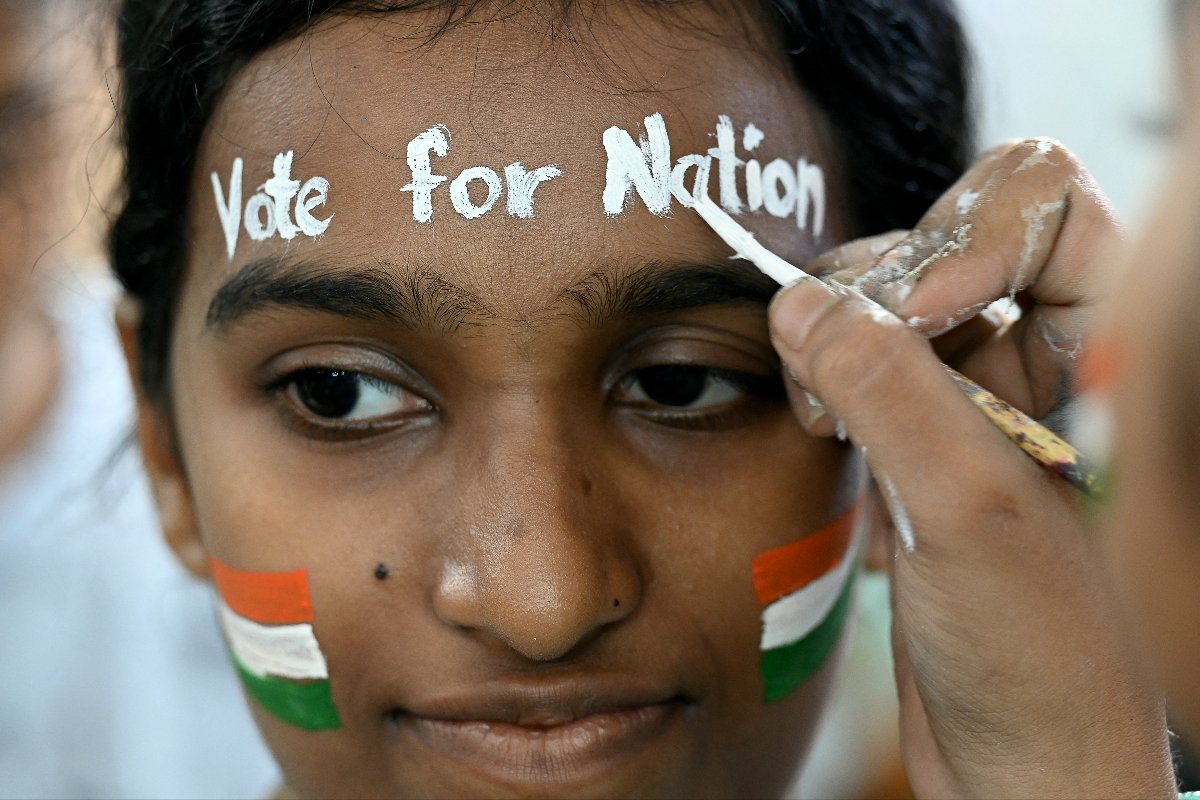As India gears up for their largest election yet, beginning on April 19 and running through June 1, the political landscape is dominated by a concerning issue: the spread of misinformation.
“Misinformation is not just a problem for election fairness – it can have deadly effects, including violence on the ground and increase hatred for minorities.”
The exponential growth of the internet and social media platforms, such as Facebook and Instagram, has made India, with its 830 million internet users, particularly vulnerable to misinformation and disinformation.
According to the World Economic Forum, India is at the highest risk for misinformation and disinformation due to the widespread use of AI, including the creation of “deepfakes.”
These false narratives not only pose a threat to the integrity of the election, but also have harmful real-world consequences, promoting violence and further dividing society.
Pratik Sinha, co-founder of Alt News, a fact-checking non-profit in India, explains,
“Ever since social media has been thriving, there is a new trend where you use misinformation to target communities.”
The vast diversity of India, in terms of language and culture, presents additional challenges for fact-checkers to navigate and identify misleading content within a timely manner.
Angie Drobnic Holan, director of the International Fact-Checking Network, comments,
“When you have got a lot of misinformation, you have a lot of need for fact-checking, and things that make the Indian environment more complex also are the many languages of India.”
While the Indian government has taken steps to address the issue, some are critical of the lack of enforcement and support from tech giants, such as Google and Meta.
In 2022, the government updated its IT intermediary rules, requiring social media companies to remove misleading content within 72 hours of it being reported. However, the effectiveness of this rule has been called into question, with some noting selective enforcement.
In response, Prateek Waghre, executive director of the Internet Freedom Foundation, reflects,
“You don’t want to have laws or rules that are so vague, that are so broad that they can be interpreted.”
While Google and Meta have announced efforts to limit the spread of misinformation during the Indian elections, actions and product-related changes have been minimal at best.
Additionally, just before the election, Meta made headlines for cutting funding to news organizations for fact-checking on WhatsApp.
The proliferation of fake news remains a major concern on social media platforms, with doctored content and misleading information, such as false news about the Model Code of Conduct and fake endorsements from celebrities, being widely shared online.
Hamsini Hariharan, a subject matter expert at fact-checking startup Logically, highlights a concerning trend of “cheapfakes” in India – content generated with less sophisticated methods of altering images, videos, and audio.
Last week, 11 civil society organizations urged the Indian election commission to hold political candidates and social media platforms accountable for any misuse of these platforms to spread misinformation.
Hariharan notes that the scale and sophistication of misinformation and disinformation have greatly increased since the last general election in 2019. Factors such as increased internet penetration, advanced technology to manipulate audiovisual content, low media literacy, and a decline in trust towards mainstream media all contribute to this rise.
One specific area of concern has been attempts to cast doubt on electronic voting machines. Logically’s fact-checkers have seen older videos and text from Supreme Court hearings about voting machines being circulated without proper context, along with hashtags such as #BanEVM in Facebook groups with thousands of followers.
Sinha agrees that online misleading content has significantly increased in India and criticizes social media companies for not doing enough to address the issue on their platforms.
He states,
“Is there a single report that’s been published in four years as to how their fact-checking enterprise is doing? No, nothing, because they know it is not working. If it was working, they would have gone to town with it, but they know it’s not working.”
Holan believes there is still much room for improvement and product changes that prioritize accuracy and reliability on social media platforms.
She states,
“The platforms invested heavily during COVID in trust and safety programs. And since then, there’s clearly been a pullback.”
In response to the increasing issue of fake news on their platforms, Meta and X have not provided any significant product updates or invested significantly in fact-checking efforts.
A spokesperson for Meta notes the recent launch of a WhatsApp tip line and an awareness campaign on Instagram to identify and stop misinformation using the platform’s features.
Meta also states,
“We have a multi-pronged approach to tackling misinformation that includes building an industry-leading network of fact-checkers in the country, including training them on tackling AI-generated misinformation.”
X, however, did not respond to a detailed questionnaire and only stated they were unavailable to comment at the moment.








